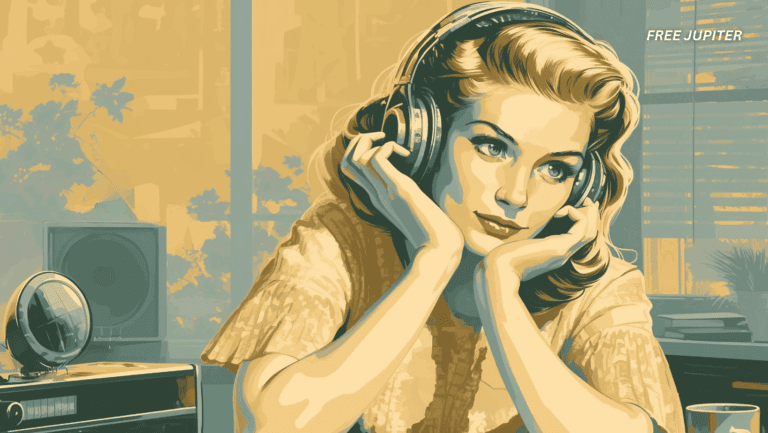Modern life has become a pressure cooker. Between bills, work deadlines, social expectations, and a constant stream of stressful global news, it’s no wonder many people feel like they’re barely holding it together. Studies show that a growing number of young adults report feeling “burnt out” before they even hit their 30s. That’s an alarming reality—people are running out of steam before they’ve had the chance to fully live.
Burnout isn’t always dramatic. It doesn’t necessarily look like someone collapsing at their desk or bursting into tears in the middle of a meeting. More often, it sneaks in quietly. It shows up in subtle, everyday behaviors that we might dismiss as laziness, forgetfulness, or moodiness. But these behaviors are actually distress signals—small ways the brain and body say, “I’m maxed out, and I don’t know how to keep going.”
This article is meant to raise awareness in a world where compassion for individuals with severe burnout is often lacking. It is ok to be tired and to rest. And the first step to healing is becoming aware of the problem.
Here are 12 things people tend to do when they’re mentally checked out and barely functioning, along with the deeper meaning behind them.
1. They zone out mid-conversation
We’ve all seen it: someone nodding along as you talk, then suddenly their gaze goes distant. They lose their train of thought, forget what they were saying, or stare into space like their brain just hit the “pause” button.
It isn’t that they don’t care about the conversation—it’s that their mental energy is so depleted that focus slips away. Stress forces the brain into survival mode, and tuning out is one way it tries to cope.
Example: Imagine you’re explaining your weekend plans to a friend, and halfway through, they blink and ask, “Wait—what were we just talking about?” It might seem rude at first, but it’s actually a sign their brain is overloaded. A gentle “You doing okay?” might be more helpful than assuming they weren’t listening.
Read more: Psychology Says Truly Selfish Women Often Display These 12 Habits
2. Their work performance slips
Even the most reliable employees aren’t immune to burnout. A Deloitte survey once revealed that nearly 8 in 10 workers have felt burnt out on the job, and for many, that exhaustion spills over into performance.
Tasks that used to feel easy suddenly drag on. Projects stay half-done. Emails pile up unanswered. To an outsider, it may look like laziness or disinterest, but what’s really happening is that the brain is simply out of fuel.
Insight: Employers often misread this. Instead of offering relief or resources, they pile on more responsibilities, which only accelerates the burnout spiral.
3. They scroll endlessly on their phones
When someone’s mentally exhausted, even enjoyable hobbies can feel like too much effort. Picking up a book, cooking a meal, or starting a new show requires mental energy they don’t have. So, they default to the path of least resistance: endless scrolling.
This kind of mindless phone use—often called doomscrolling—becomes a coping mechanism. Social media feeds, online shopping lists, or random memes offer distraction, but they rarely refresh the brain. In fact, studies show it can worsen anxiety and fatigue.
Example: Someone may sit down “just to check Instagram for five minutes,” only to look up and realize two hours have passed. They aren’t enjoying it; they’re escaping.
4. They struggle with even the simplest decisions
Should I cook dinner or order takeout? Do I want pizza or noodles? Should I reply to that message now or later?
When people are mentally checked out, even basic choices feel paralyzing. This is because emotional fatigue weakens cognitive functions like memory and attention. Decisions that once felt automatic now drain what little energy is left.
Instead of making a choice, people may procrastinate, defer to someone else, or pick whatever is easiest.
Expert note: Psychologists call this decision fatigue. It’s the same phenomenon that makes CEOs wear the same outfit every day—they’re conserving energy for bigger decisions. For someone burnt out, even choosing a coffee order feels “big.”
5. Their sleep patterns become erratic
For some, sleep is the only escape. They nap for hours or sleep excessively, using it as a way to shut out the world. For others, stress ruins their rest entirely—they toss, turn, and wake up groggy despite spending the night in bed.
This tug-of-war happens because stress activates the body’s fight-or-flight response. The brain stays alert, convinced it’s in danger, which makes true rest nearly impossible.
Example: Healthcare workers, teachers, and social workers often report this problem. Studies show their sleep “reactivity” increases with burnout—meaning stress directly interferes with the ability to fall and stay asleep.
Read more: 12 Traits of Highly Intuitive People Who See the World Differently From Everyone Else
6. They neglect basic self-care
Brushing teeth, taking a shower, cooking something healthy—these tiny tasks suddenly feel monumental. Instead, people may throw on yesterday’s clothes, grab fast food, or skip grooming entirely.
It isn’t that they don’t care; it’s that they’re prioritizing survival. Work, deadlines, and obligations get the scraps of energy, while self-care slips to the bottom of the list. Ironically, the very things that would help recharge them—fresh air, a shower, a nourishing meal—feel impossible to manage.
7. They start things but rarely finish them
Look at their desk, and you’ll likely see a trail of unfinished tasks: a half-written email, a half-folded pile of laundry, a tab that’s been open for three weeks.
Starting something feels manageable at first—there’s a burst of motivation. But burnout drains stamina, so halfway through, the task loses all momentum. The result is a string of half-done projects that serve as silent reminders of exhaustion.
8. They lose track of time
For people who are mentally checked out, time becomes slippery. What used to take 10 minutes now takes an hour. Days blend together. Suddenly, it’s dark outside, and the only thing accomplished was moving dishes from the table to the sink.
This isn’t poor time management; it’s the brain slowing down under stress. Researchers have found that burnout reduces the brain’s ability to switch between tasks efficiently, making even simple routines feel endless.
9. They withdraw socially
Texts go unanswered. Calls go to voicemail. Plans are politely declined again and again. To friends, it may seem like rejection, but the truth is more complicated.
When someone is barely functioning, even replying with “Sure, let’s meet up” can feel overwhelming. Socializing requires energy—listening, responding, engaging. And when reserves are empty, even beloved friends feel like another demand.
Example: You might invite someone out for coffee, and they say, “I’m just too tired.” What they really mean is, “I don’t have the emotional bandwidth to be a person today.”
10. They depend on caffeine like it’s oxygen
Coffee cups multiply on their desk. Energy drinks line their fridge. Caffeine becomes less of a luxury and more of a survival tool.
And while caffeine does help in the short term, over-reliance backfires. It can cause jitters, anxiety, and even withdrawal headaches if they skip their daily fix. Instead of restoring energy, it creates a cycle of temporary highs and deeper crashes.
11. They mask struggles with humor or sarcasm
Jokes like “I’m dead inside” or “Guess I’ll just never sleep again” may sound funny, but they’re often protective shields. Sarcasm is easier than admitting, “I’m struggling.”
In many cases, the people who make everyone laugh are the ones privately battling the heaviest loads. Humor becomes armor—a way to deflect concern while still hinting at the truth.
12. They live life on autopilot
Perhaps the most telling sign of being mentally checked out is the sense of drifting. Days blur into one another. Meals are eaten without tasting them. Conversations are had but not remembered. It feels like going through the motions of life without truly experiencing it.
This autopilot state is the brain’s way of conserving energy—like dimming the lights to keep the power from going out completely. But over time, it creates a sense of emptiness, as though life is happening without any real participation.
Read more: Therapist Shares 12 Phrases to Use Instead of Apologizing For Every Little Thing
Final Thoughts
These 12 behaviors aren’t signs of laziness or weakness—they’re red flags that someone is overwhelmed and running on empty. Burnout isn’t a personal failure; it’s a signal that something needs to change.
If you recognize these patterns in yourself, it may be time to step back, rest, and reset. If you notice them in someone else, offering patience, understanding, and compassion can mean more than you realize.
At the heart of it, everyone wants the same thing: not just to function, but to truly live. And sometimes the first step is simply recognizing when we’ve checked out—and gently finding our way back.










